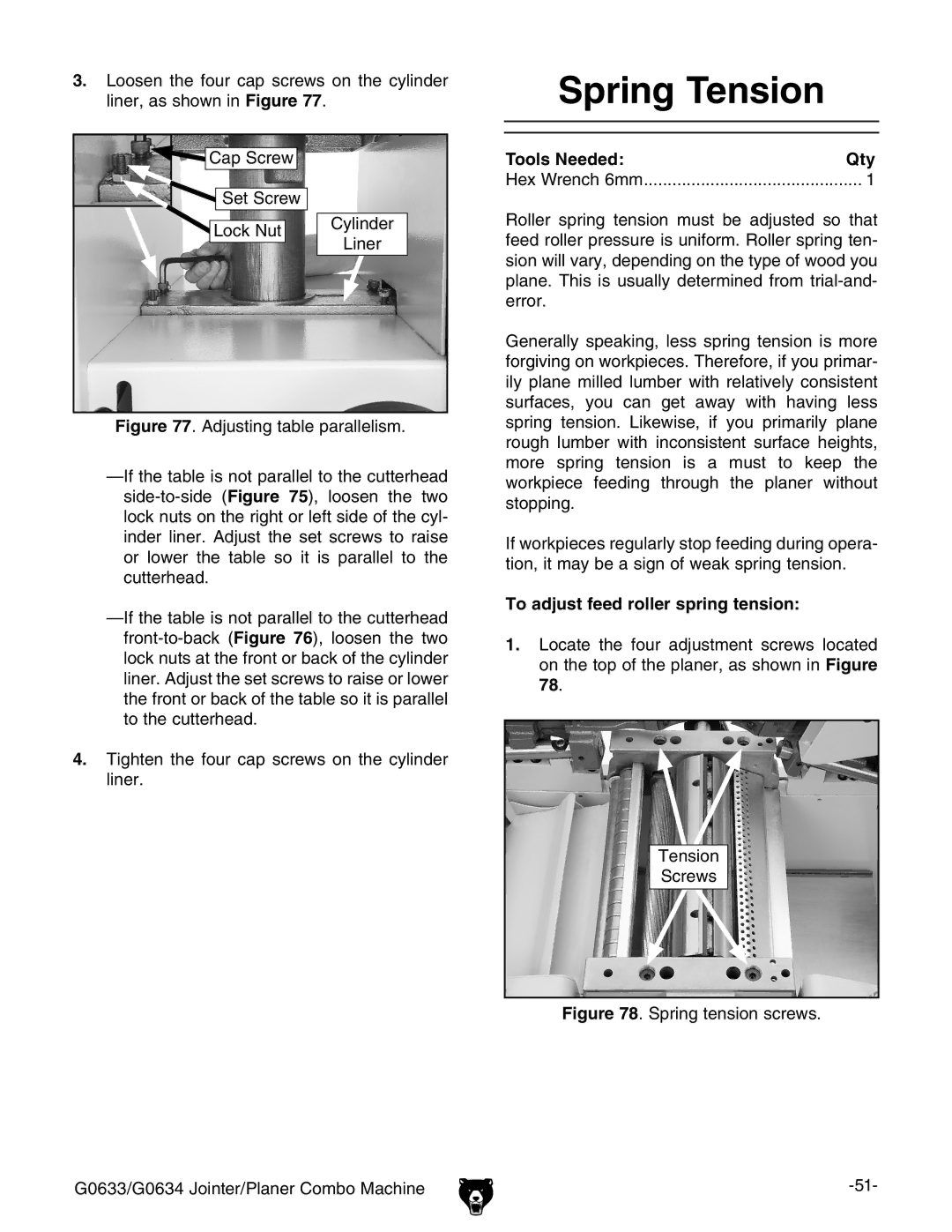
3.Loosen the four cap screws on the cylinder liner, as shown in Figure 77.
Cap Screw |
| |
Set Screw |
| |
Lock Nut | Cylinder | |
Liner | ||
|
Figure 77. Adjusting table parallelism.
—If the table is not parallel to the cutterhead side-to-side (Figure 75), loosen the two lock nuts on the right or left side of the cyl- inder liner. Adjust the set screws to raise or lower the table so it is parallel to the cutterhead.
—If the table is not parallel to the cutterhead front-to-back (Figure 76), loosen the two lock nuts at the front or back of the cylinder liner. Adjust the set screws to raise or lower the front or back of the table so it is parallel to the cutterhead.
4.Tighten the four cap screws on the cylinder liner.
Spring Tension
Tools Needed: | Qty |
Hex Wrench 6mm | .............................................. 1 |
Roller spring tension must be adjusted so that feed roller pressure is uniform. Roller spring ten- sion will vary, depending on the type of wood you plane. This is usually determined from
Generally speaking, less spring tension is more forgiving on workpieces. Therefore, if you primar- ily plane milled lumber with relatively consistent surfaces, you can get away with having less spring tension. Likewise, if you primarily plane rough lumber with inconsistent surface heights, more spring tension is a must to keep the workpiece feeding through the planer without stopping.
If workpieces regularly stop feeding during opera- tion, it may be a sign of weak spring tension.
To adjust feed roller spring tension:
1.Locate the four adjustment screws located on the top of the planer, as shown in Figure 78.
Tension
Screws
Figure 78. Spring tension screws.
G0633/G0634 Jointer/Planer Combo Machine |
